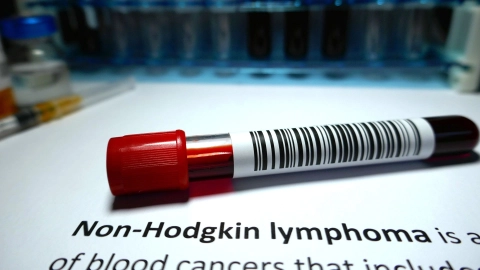ICD-Code C84.5: Other mature T/NK-cell lymphomas
You have a lymphoma. A lymphoma is cancer of the immune cells (defense cells).
The immune cells are part of the blood cells and are formed in the bone marrow. Some of the immune cells are in the blood, some are in different organs. There are many immune cells in the spleen, the lymph nodes and in the skin.
With a lymphoma, certain lymph nodes divide uncontrollably. As a result, there are a great many immune cells in your body. But these immune cells are not working properly. The diseased immune cells often accumulate in the lymph nodes or in the spleen. This results in the lymph nodes or the spleen being too big. Sometimes the diseased immune cells also accumulate in the bone marrow. If there are a great many diseased immune cells in the bone marrow, then other blood cells there can no longer be produced properly. You may then feel ill much more often and more seriously.
There are various kinds of immune cells. Different types of lymphoma can develop depending on which immune cells are changed. These different types of lymphoma cause different symptoms. There are types of lymphoma that cause serious symptoms in a short time. You may then have fever or lose a lot of weight without wanting to. But there are also types of lymphoma that are discovered accidentally and only cause a few symptoms at the beginning.
Additional indicator
On medical documents, the ICD code is often appended by letters that indicate the diagnostic certainty or the affected side of the body.
- G: Confirmed diagnosis
- V: Tentative diagnosis
- Z: Condition after
- A: Excluded diagnosis
- L: Left
- R: Right
- B: Both sides
Further information
Source
Provided by the non-profit organization “Was hab’ ich?” gemeinnützige GmbH on behalf of the Federal Ministry of Health (BMG).

